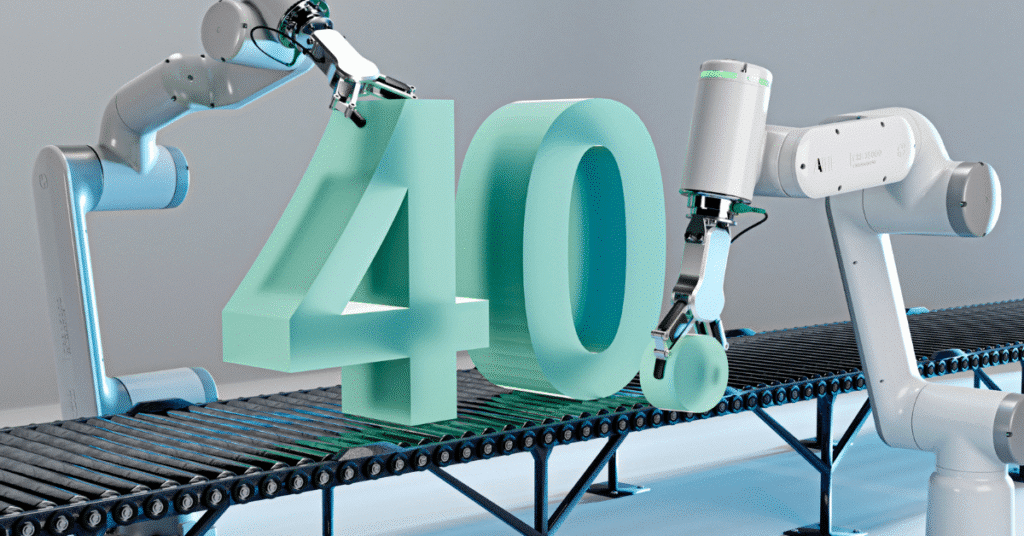Industry 4.0 has fundamentally reshaped the manufacturing landscape. As automation, artificial intelligence, and the Internet of Things (IoT) redefine operations, the profile of the ideal manufacturing leader is changing rapidly. No longer is a traditional engineering degree the golden ticket to leadership. Instead, the focus is shifting to skills-based hiring, especially when it comes to soft skills: adaptability, emotional intelligence, collaboration, and strategic thinking.
Manufacturing companies are recognizing that leadership success in a smart factory environment depends not only on technical know-how, but also on a new kind of agility. Skills-based hiring opens the door to more diverse talent pipelines and future-ready leadership. And with the pressure to innovate faster, transform digitally, and manage hybrid workforces, this shift is arriving just in time.
Trends in Manufacturing 2025
Smart factories are no longer a vision of the future; they are here. By 2025, over 60% of manufacturing organizations have begun implementing advanced automation, robotics, and cloud-based platforms to optimize production and supply chain agility (Forbes, 2024).
But while technology adoption accelerates, the leadership gap is growing. According to PeopleHum, the shortage of leaders who can navigate both high-tech environments and complex people dynamics is among the top three barriers to successful digital transformation in manufacturing (PeopleHum, 2025).
Kilpatrick Executive has highlighted that many manufacturing companies underestimate the human side of industrial innovation. As companies invest in smart systems, they must also invest in smart leadership that can drive collaboration, change management, and a culture of continuous improvement.
From Degrees to Skills – What Leaders Really Need
A global shift is underway from degree-first to skills-first hiring. This trend is especially relevant in manufacturing, where evolving technologies demand constant upskilling and cross-functional adaptability. Employers like IBM, Google, and Siemens have already removed degree requirements from key leadership roles in favor of capability-based assessments (EmpTrust, 2025).
In the age of AI, it’s not enough to have a mechanical engineering degree. Leaders must demonstrate:
- Critical thinking under pressure
- Data-driven decision-making
- Change leadership
- Cross-departmental collaboration
Micro-credentials, hands-on simulations, and real-time problem-solving scenarios are now more valued than academic pedigree alone. Platforms like Coursera and edX are partnering with manufacturing companies to deliver focused leadership tracks, allowing high-potential talent to rise based on measurable impact.
Evaluating Soft Skills in Technical Executives
While technical expertise can be validated through certifications, soft skills are more elusive. Yet in Industry 4.0 environments, they are essential.
Kilpatrick Executive incorporates behavioral interviews and psychometric tools into its assessment process to measure leadership agility, emotional intelligence (EQ), and resilience. These include:
- Situational judgment tests (for adaptability)
- Cognitive flexibility indicators (for managing complexity)
- Emotional intelligence mapping (for influencing across silos)
According to a McLean & Company report, manufacturing leaders with high EQ outperform peers in digital transformation outcomes by 22% (McLean, 2025).
Case Example: Digital Transformation in Automotive Components
A Tier 1 automotive supplier in Germany transitioned from a legacy ERP to a cloud-based MES system across six plants. Instead of hiring a CTO with a pure tech background, they selected a plant manager who had shown exceptional people leadership during past disruptions. With targeted digital training, he led the transition with minimal downtime and high employee buy-in—a testament to skills-based leadership.
Five Actionable Steps for HR and Executive Search
Here are five ways HR leaders and executive search firms can adopt a skills-based approach to build strong manufacturing leadership pipelines:
1. Design Industry 4.0-Specific Competency Frameworks
Define the core technical and soft skills required for leadership in automated, AI-driven environments. Map them to performance metrics and transformation KPIs.
2. Integrate Soft Skills Assessment Tools
Use validated tools such as Thomas International, Hogan Assessments, or SHL to measure resilience, problem-solving, and leadership styles.
3. Promote Micro-Learning & Technical Bootcamps
Collaborate with L&D providers to offer agile upskilling pathways. Encourage internal candidates to build leadership credentials through modular learning.
4. Broaden Sourcing Strategies
Move beyond traditional engineering backgrounds. Include candidates with operational, digital, or commercial experience who have demonstrated cross-functional leadership.
5. Align with DEI Goals
Skills-based hiring supports diversity by eliminating unnecessary degree barriers. Build inclusive pipelines by assessing real capability over traditional prestige.
Conclusion
Smart factories need smart leaders—not just those with technical IQ but those with people-first EQ, strategic foresight, and the ability to lead through ambiguity. Skills-based hiring in manufacturing not only broadens the talent pool, but also ensures that leadership reflects the agile, forward-thinking mindset Industry 4.0 demands.
Executive search firms like Kilpatrick are uniquely positioned to bridge the gap between talent readiness and industrial transformation. By combining rigorous soft skills evaluation with strategic role matching, they help manufacturers future-proof their leadership for an era defined by both machines and mindset.
Want to build your next generation of smart factory leaders? Let’s talk.

